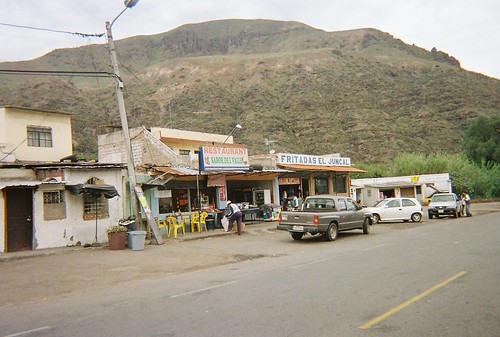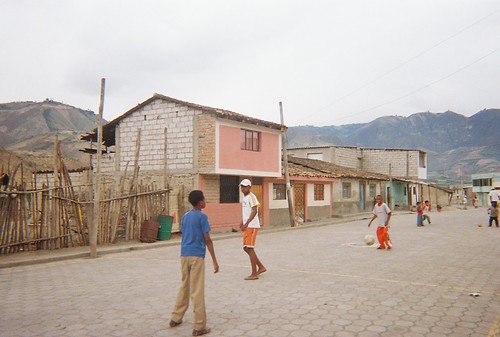One Friday evening, while vacationing in Quito, Ecuador, I jumped into a cab for a 30 minute ride back to my hotel on the other side of town. The cab driver asked me if I was from a Spanish-speaking country in the Caribbean. I simply said no, I'm from the United States of America. He never suspected as such listening to my Spanish, which he felt has a Caribbean accent.
While most people look at me and simply assume that I'm African-American (and I am), I often get questioned about my ethnicity. Co-workers thought I was Cuban just because I interpreted for a couple of Spanish speakers, and went to Cuba (legally) on vacation. One day, at a bus stop in the Spanish-speaking Fruitvale District of Oakland, I casually struck up a Spanish-speaking conversation with a woman also waiting for a bus. Her immediate response was, ¡ayyy Cubano (oh, you're Cuban)! Many Latin-American people, who hear me speak Spanish, ask me if I'm from Puerto Rico or Cuba (two Caribbean countries).
It never seems to occur to anyone that I'm taking the time and the energy to learn to learn to speak the language. People feel that I must be a native speaker. The truth of the matter is that my Spanish is far from perfect; I'm still learning, which is one of the reasons I travel to countries where I'm forced to speak Spanish only and can't fall back on my English, even if I wanted to. Like the evening I was in a restaurant, and was so upset at the service that I almost forgot my Spanish as I demanded to speak with the manager. I was disappointed when the manager told me that he didn't speak English. I had no other choice but to calm down and register my complaint in Spanish, and the service immediately got better.
One of my former supervisors at work stated on my performance evaluation that I'm bi-cultural because of the way I interact with Spanish-speaking immigrants, travel to Latin-American countries, and listen to various genres of Latin-American music. In sports, I was a sentimental fan of Ecuador's predominately Black 2006 Word Cup soccer team, and a fan of the historically Black “Alianza Lima” soccer team in Lima, Perú.
One day in Lima, I was walking down the street wearing a t-shirt representing Chincha, a province in Southern Perú with a large Black population. A Black security officer came over to me excited, shaking my hand, smiling, and telling me that he too is from Chincha. I didn't get past two words before he burst out laughing, shook his head, and told me,
dude, you're not from Chincha, you're from another country! My foreign accent gave me away. However, he was so surprised when I told him that I'm African-American. A lot of Peruvians I met thought that I was either from Brazil or Panamá, two nearby countries, or from Puerto Rico or Cuba, two Caribbean countries.
When I was in Cuba, almost everyone assumed that I too am Cuban until I opened my mouth. Again, my foreign accent was a dead giveaway. As much as I wanted to fake a Cuban accent to try to fit in, that was way over my head. One day, I was walking through a housing project in Havana, and as I passed by a guy, I greeted him with,
Qué Bolá, Asere, a Cuban equivalent of what's up, bro. His eyes got big, indicating that he knew I was not from around there. Many Latinos I talk to here in the US tell me that my Spanish sounds Puerto Rican. A woman directly from the island of Puerto Rico told me that I sound more like a Nuyorican, ie., a New York Puerto Rican. Now, that makes sense because I grew up very close to Spanish Harlem in New York City, which was predominately Puerto Rican. I'm now a transplanted New Yorker living in Oakland, CA..






















